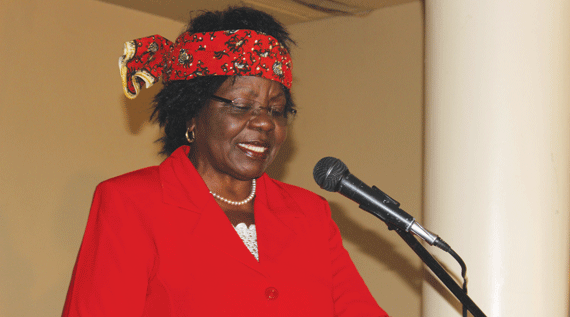
THE government has formed an 11-member advisory council team to hasten the formalisation of micro, small-to-medium businesses (SMEs), a Cabinet minister has said.
In Zimbabwe, SMEs have dominated the economy, yet the majority of them continue to run informally.
Women’s Affairs, Small and Medium Enterprises (SMEs) Development minister Sithembiso Nyoni told Standardbusiness in an interview that it was for this reason that the ministry was intensifying the push for the formalisation of the sector.
“The advisory council will foresee the speeding up of the formalization strategy of the informal sector which is one of the ministry’s key objectives,” Nyoni said.
“This council plays a critical role in supporting the development and growth of MSMEs in our country and given the diversity of the members, I have no doubt that the council will be able to effectively discharge its mandate.”
In November 2021, the government began consultations towards formulating a comprehensive MSMEs formalisation strategy.
Nyoni’s ministry is coordinating the strategy.
The minister revealed that the council will advise the government, local authorities, Small and Medium Enterprises Development Corporation (SMEDCO) and other statutory bodies on issues relating to SMEs.
- Village Rhapsody: How Zimbabwe can improve governance
- Village Rhapsody: Engage men to end gender-based violence
- Village Rhapsody: How Zimbabwe can improve governance
- Zim maize output to drops by 43%
Keep Reading
It will assist through the provision of advice on the formulation and implementation of schemes, while also evaluating the effect of schemes on MSMEs and report the results of its evaluation to the minister.
Zimbabwe’s informal sector has been expanding ahead of a formal sector that has been crippled by de-industrialisation.
The International Monetary Fund (IMF) estimates that about 60% of the economy is now controlled by the informal sector.
According to the Reserve Bank of Zimbabwe FinScope MSME survey released last year, the MSME sector is a key growth pillar of the economy.
Based on the statistics in the survey, 3,3 million people work in the sector. This number includes 1,3 million individual entrepreneurs and 305 607 other business owners with 1,7 million employees.
The survey found 1,6 million MSME owners who own 1,95 million MSMEs which have a combined annual revenue of US$14,2 billion.
“Compliance has largely been linked to formalisation as the benefits of formalisation have been mostly to comply with the law and to avoid harassment from authorities,” part of the survey read.
“This stigma unfortunately stifles formalisation and its benefits to the business owner or enterprise.
“Business support is key to enterprise development, growth and sustainability.
“Awareness of support institutions is high; however, usage is significantly lower.”
The survey found that efforts to improve awareness of the chamber of SMEs and SMEDCO, among others, should be prioritised.
The rate of formalisation has remained stagnant at 14% over the past decade, with the lowest rates being found in sole proprietorships and very small businesses.
Usually, a company’s size prevents it from registering, either because it's too modest or because it does not have enough capital.
Thus, business owners express a desire to formally register their companies if doing so would not cost them anything and if the company would be adequately educated on the advantages of doing so.










